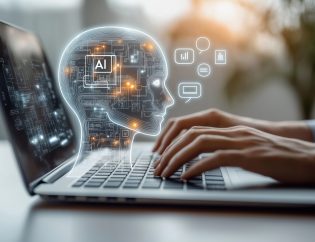Introduction to Diversity and AI in Recruitment
Diversity and inclusion have become central to the ethos of modern workplaces. A diverse team is not just an ethical aspiration but a business imperative, fostering a rich breeding ground for innovation, understanding, and problem-solving. However, achieving true diversity in recruitment has always been challenging, marred by unintentional biases and traditional practices. This is where Artificial Intelligence (AI) steps in, offering a transformative solution to these age-old challenges.
The Role of AI in Crafting Inclusive Job Descriptions
One of the first touchpoints in the recruitment process is the job description. Often, these descriptions, with subtly biased language, can dissuade a wide range of potential applicants. AI tools are revolutionizing this aspect by analyzing and suggesting changes to job descriptions, ensuring they are inclusive and appealing to a diverse candidate pool. This shift from inadvertently biased language to intentionally inclusive wording is a monumental step in attracting a broader spectrum of applicants.
Read more: Job Descriptions That Attract Top Talent
Broadening Talent Search with AI
Moving beyond job descriptions, AI's real power is unleashed in identifying and attracting diverse talent. Traditional recruitment often inadvertently narrows down the talent pool, but AI algorithms, designed to explore and analyze diverse sources, help recruiters break free from these restrictions.
By analyzing data from various platforms and networks, AI enables recruiters to discover talent from different demographics, geographies, and cultural backgrounds, leading to a more diverse workforce.
Case Studies in Diverse Talent Acquisition
Several companies have successfully implemented AI to diversify their talent pipeline. For instance, IBM uses AI to parse through vast datasets to identify candidates who might be overlooked through traditional methods. This approach has not only diversified their talent pool but also enhanced the quality of their hires. IBM has been using AI tools in HR for evaluating employees and preparing them for career advancement. Their AI-driven Blue Matching program uses predictive analytics to suggest internal job opportunities for employees, while their CogniPay program assists managers in making better compensation decisions. These tools have helped IBM save more than $100 million in costs associated with recruiting, training, and employee attrition
Tackling Bias in Resume Screening
AI's role becomes even more crucial in the resume screening phase. Traditional screening methods are prone to unconscious biases, often favoring certain demographics over others. AI algorithms, focused on skills and experience rather than personal details, ensure a fairer screening process. This technology can strip away identifiers like names, addresses, or institutions, focusing solely on the qualifications relevant to the job.
Success Stories in Bias Reduction
Companies like Unilever have leveraged AI to reduce bias in their hiring process. By using AI for initial resume screenings, they have reported a more diverse and qualified pool of candidates, showcasing the potential of AI in creating equitable hiring practices.
Unilever have broadened their recruitment horizons, reaching out to candidates from varied backgrounds and experiences. Unilever's AI-driven recruitment process, which includes digital interviews and online assessments, has led to a more diverse workforce, reflecting a wider range of talents and perspectives.
Enhancing Interview Processes with AI
The interview process is another critical area where AI is making strides.
AI-powered interviewing tools offer a structured, unbiased approach, ensuring each candidate is evaluated based on the same criteria.
This method significantly reduces personal biases that might creep into traditional interviews.
Gamified Assessments and Fair Evaluation
Gamified assessments, another AI-driven tool, evaluate candidates in simulated work environments. These assessments focus on practical skills and problem-solving abilities rather than conventional metrics, offering a fairer and more accurate evaluation of a candidate's potential.
Continuous Monitoring for Sustainable Diversity
Implementing AI in recruitment is not a one-time fix but a continuous journey. AI-driven analytics play a crucial role in this process, offering insights into how recruitment strategies are impacting diversity and inclusion. These tools can track various metrics over time, providing data-driven insights that help fine-tune recruitment strategies for better outcomes.
With AI analytics, organizations can understand the nuances of their recruitment processes, identifying areas where diversity goals are being met and where improvements are needed. This ongoing process of monitoring and adjustment is essential for creating and maintaining a diverse workforce.
Navigating the Ethical Landscape of AI in Recruitment
While the potential of AI in recruitment is vast, it's crucial to navigate its ethical implications carefully. The General Data Protection Regulation (GDPR) in the EU, for example, imposes strict rules on AI, requiring transparency and the safeguarding of individual rights. In the U.S., the Equal Employment Opportunity Commission (EEOC) provides guidance on using AI in hiring, emphasizing the need for compliance with laws like the Americans with Disabilities Act (ADA) and Title VII of the Civil Rights Act. The EEOC stresses the importance of ensuring AI tools do not create a disparate impact on protected groups and advises regular audits of AI-assisted selection procedures.
As AI in the workplace grows, it's essential for employers to understand the legal and statistical nuances of disparate impact discrimination. This includes maintaining human involvement in AI-assisted selection procedures and partnering with experts to ensure compliance with the law.
The integration of AI into recruitment processes offers a promising pathway to more diverse and inclusive workforces. However, it's not without challenges. The key lies in using AI tools judiciously, understanding their limitations, and being prepared to evolve with the technology. Employers must stay informed about legal and ethical considerations to ensure their recruitment strategies are not only effective but also fair and transparent. In doing so, organizations can leverage AI's power to create workplaces that are truly diverse and inclusive, driving innovation and success.









